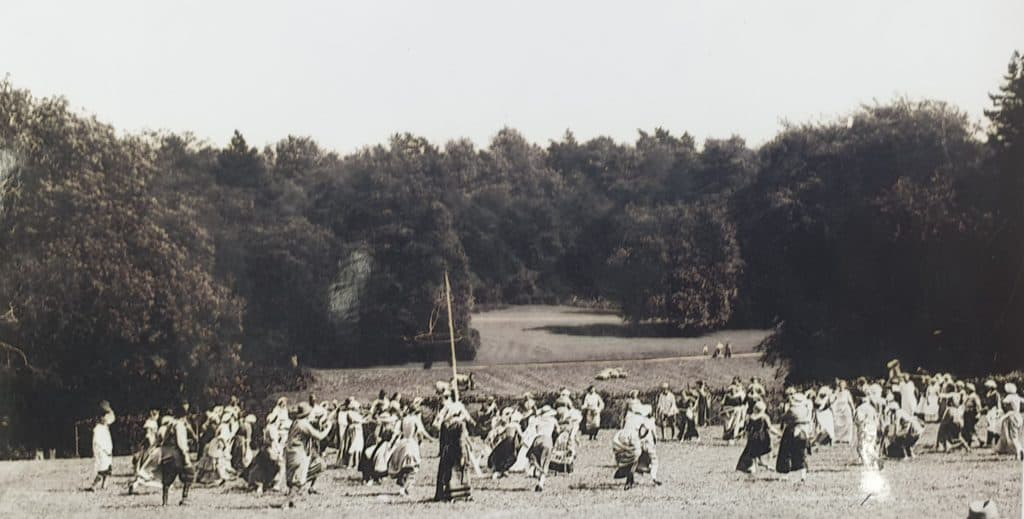
“To spoil the beauty of his native land or to preserve it?” – England’s Pleasant Land
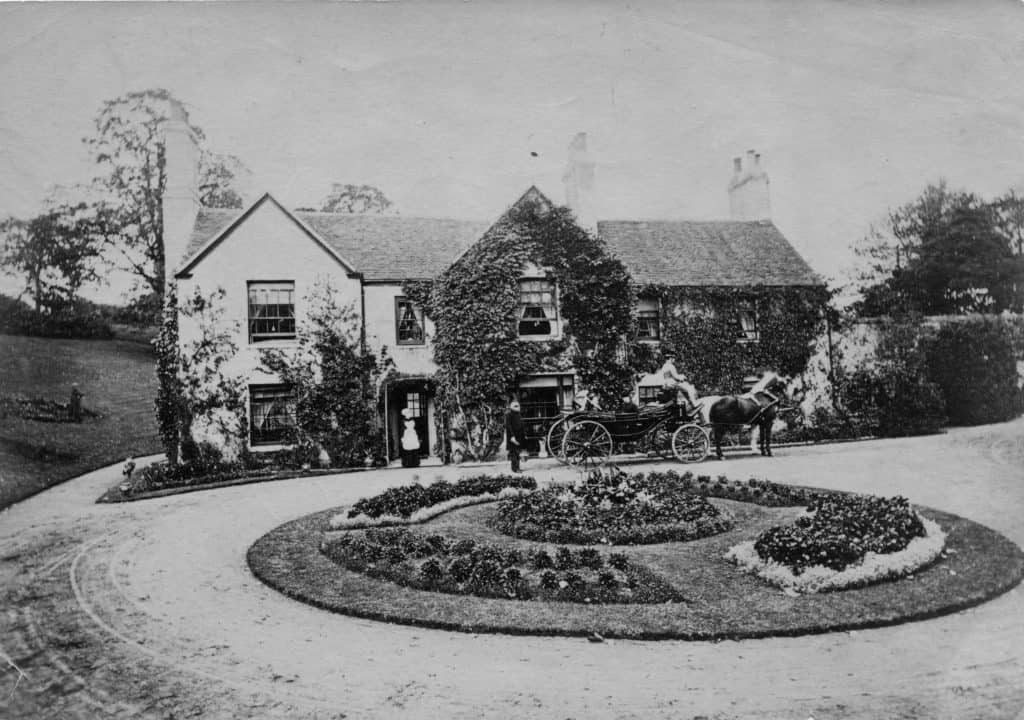
Cat No. K07
© Dorking Museum
In 1934 Forster wrote a script for a pageant to be performed at Abinger Rectory to raise funds for the restoration of St James’ church. He was motivated by his love of the pastoral – woodlands featured heavily in novels such as Maurice. In calling it a ‘pageant’ he was harking back to a traditional dramatic form, combining music, drama and spectacle with a large cast. A celebration of the locality, The Abinger Pageant narrated six episodes from parish history. Vaughan Williams provided the music.
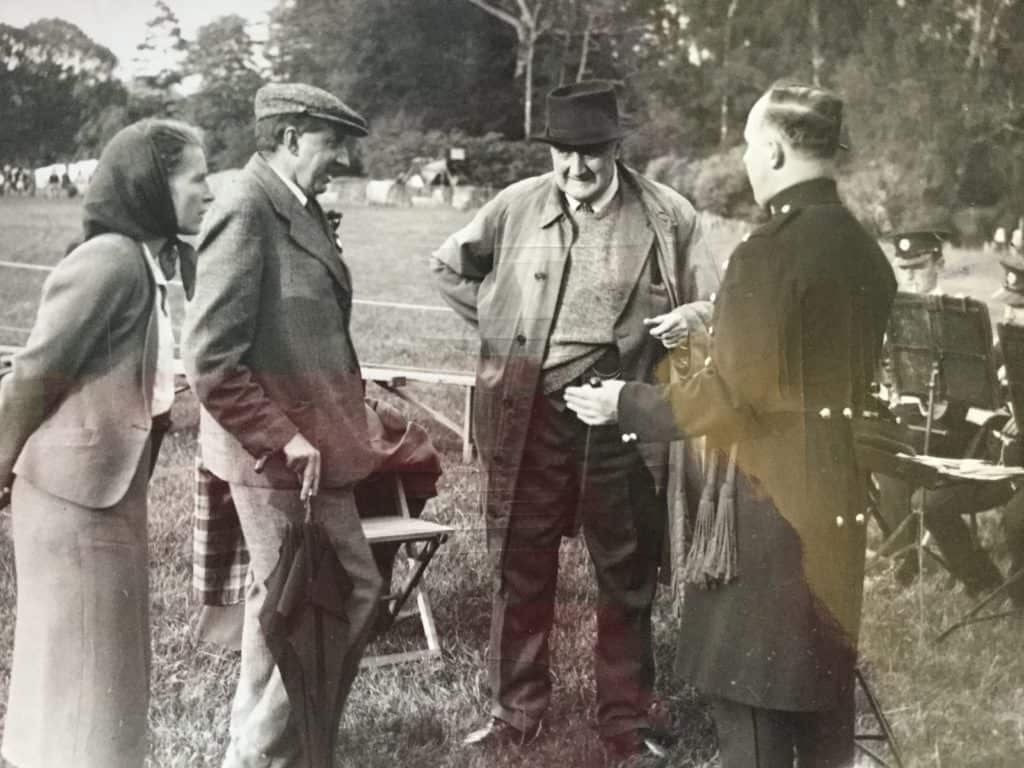
Three years later Forster and Vaughan Williams collaborated again to produce England’s Pleasant Land. Presented by the Dorking and Leith Hill Preservation Society at Milton Court, the pageant had environmental and political themes. England’s Pleasant Land examined threats to the countryside over the ages, and the struggles of those living there to preserve it. Examining the impact of the enclosure of common land in the 18th century and the introduction of death duties in the 20th, the pageant presented a somewhat romantic view of the ‘natural’ order of things, with the old gentry protecting the land and builders and developers preying on it for profit. ‘Ripe for Development is England’s Pleasant Land’, chants Jerry the builder as death duties bring land onto the market. There followed a procession of horrors – cars, buses and bikes, paper litter and empty tins. The epilogue called for a new order to save England’s pleasant land.
Forster owned his own piece of woodland, 4.4 acre Piney Copse, which he left to the National Trust on his death. At his farewell party in 1946 he gave a rousing speech in defence of local footpaths.
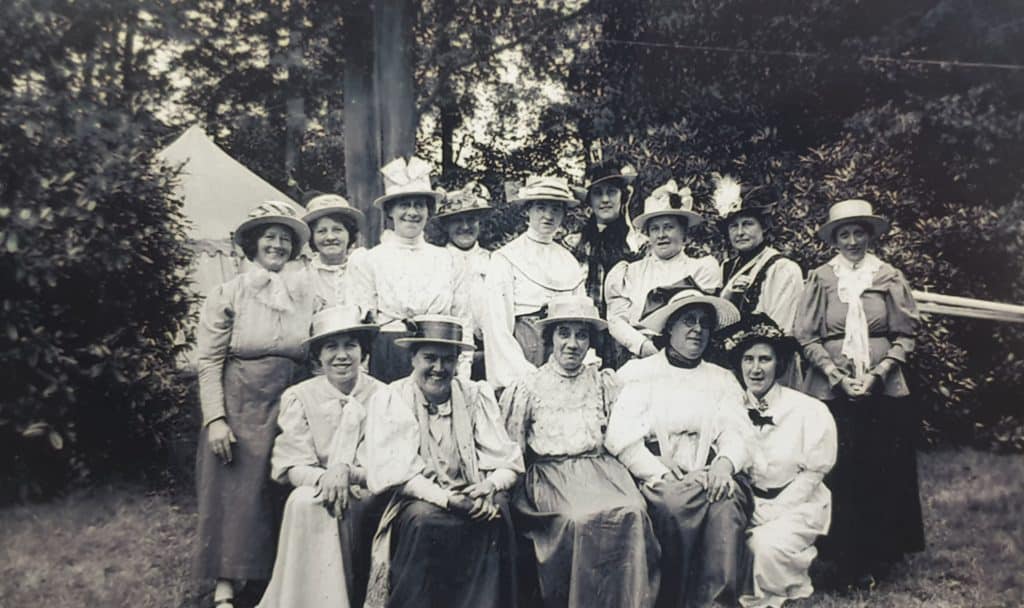
The Dorking and Leith Hill Preservation Society had been founded in 1929 in response to threats to the countryside in the wake of the break-up of large estates that saw building on many beauty spots all over England in the years between the wars. Now known as the Dorking Society, it continues to campaign to protect the local environment.
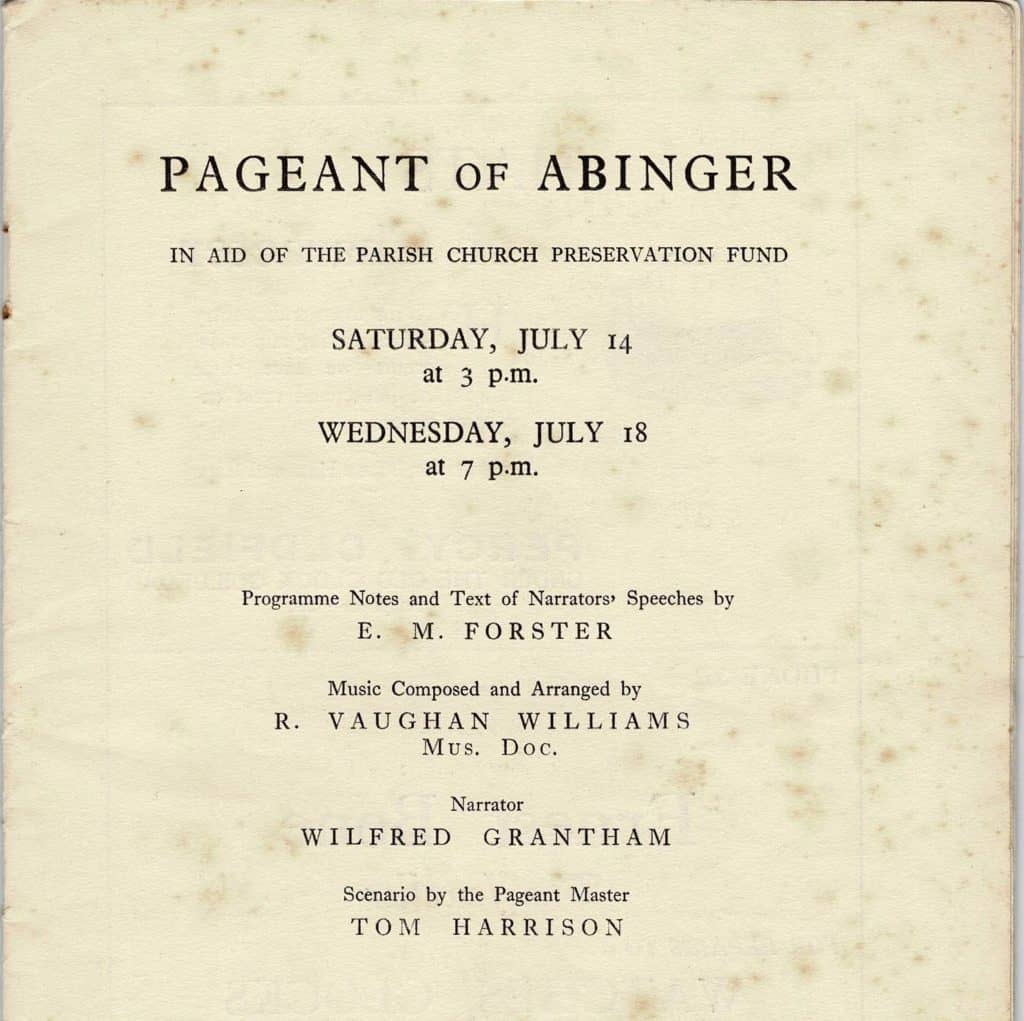
The Abinger Pageant had 500 participants, including a band and choir. Narrated by a woodman, it presented the history of Abinger from the time of the ancient Britons, and threats to its inhabitants from Romans, Saxons, medieval kings, the Spanish Armada and Civil War, smugglers and excise men to the modern threats of by-passes, petrol pumps, pylons and arterial roads. The pageant paid homage to John Evelyn of Wotton for replanting trees lost to ironworking in the seventeenth century.
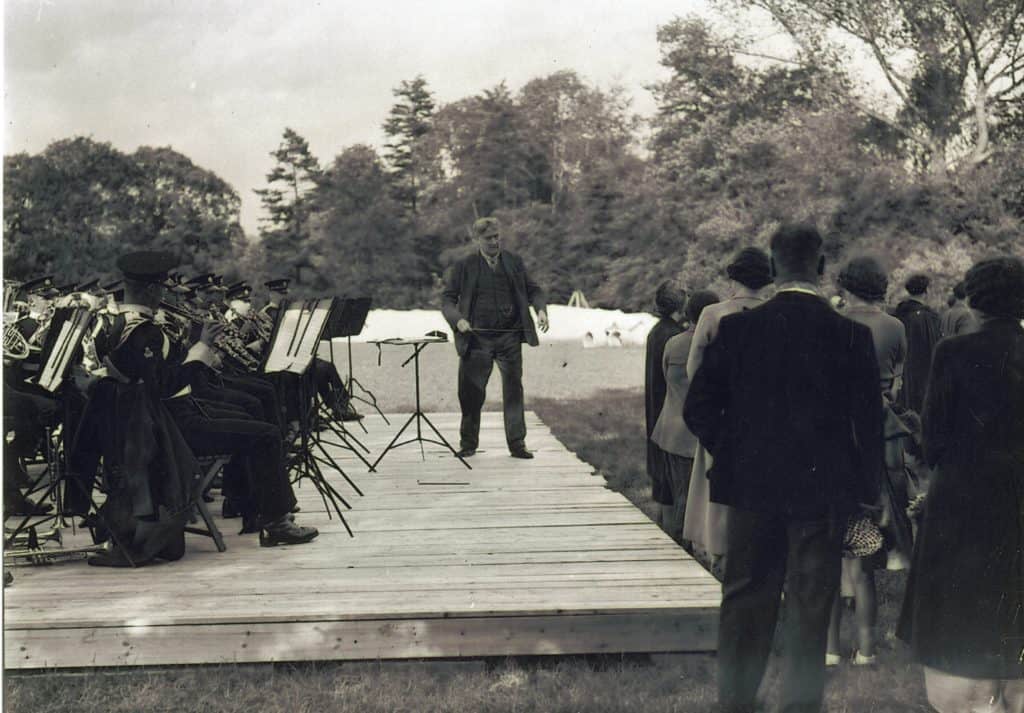
Cat No. D5. 44
© Dorking Museum
The composer called upon eminent musical friends to provide pieces of music. William Cole provided a fanfare. The pageant ended with choirs singing ‘Jerusalem” and ‘I vow to thee my country’.
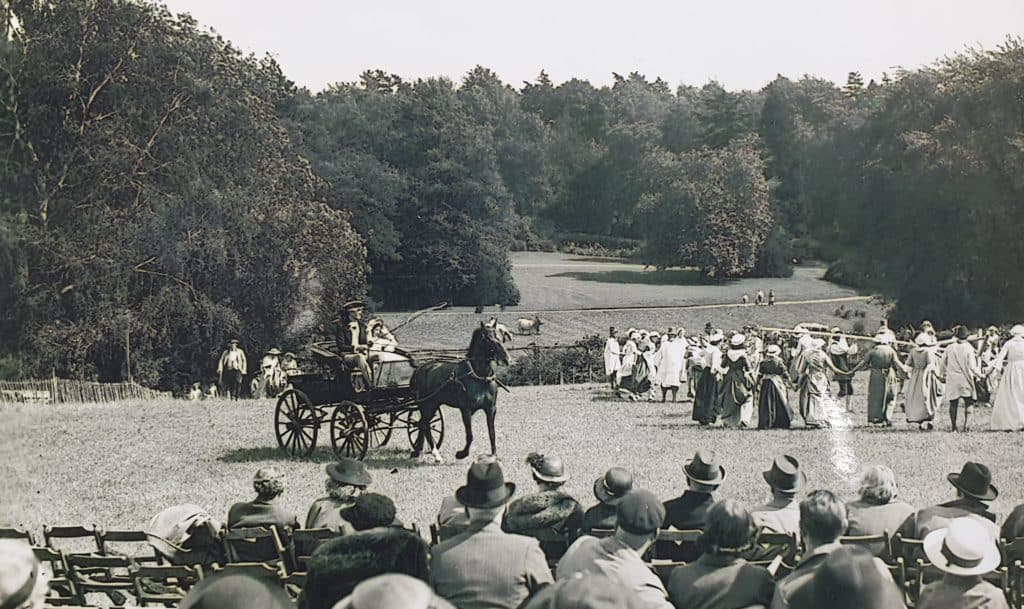
The Old Squire’s family is credited with having protected the land for generations.
© Dorking Museum
From Abinger Harvest – ‘My Wood’ by E. M. Foster
‘It is not a large wood – it contains scarcely any trees, and it is intersected, blast it, by a public footpath. Still it is the first property that I have owned, so it is right that other people should participate in my shame, and should ask themselves in accents that will vary in horror, this very important question: What is the effect of property upon the character? …If you own things, what is their effect on you? What the effect of me on my wood?’
In an essay Forster examined the psychological effects of land ownership, the desire to have an impact on the land and to deny its pleasures to others. People gather blackberries and foxgloves in his wood; they roll in the bracken and leave picnic debris. He asks himself if he should he build a high wall around it so that he can gorge on his blackberries unseen. ‘Pray does my wood belong to me or doesn’t it? And, if it does, should I not own it best by allowing no one else to walk there?’
Last : West Hackhurst
Next : Forster and local politics

